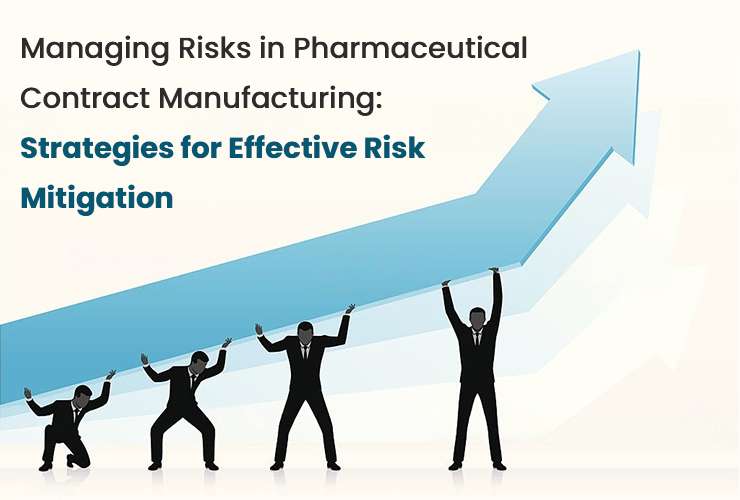

Risk is a crucial aspect of the pharmaceutical industry. Things once designed get tested for their authenticity, results, and technicalities. Pharmaceutical contract manufacturers make the transition of products and services smooth and successful.
Introduction
The pharmaceutical sector has been full of speculations. Pharmaceutical products are designed, manufactured, tested, and distributed under set procedures and compliance. Compliance with regulations meant for pharmaceutical products is quite rigid and needs to be abided as it is. However, companies find it difficult to cope with such stringent regulations. Other than this, they get less scope to concentrate on core functionalities and are thus supported by Pharmaceutical contract manufacturers.
Pharmaceutical product manufacturing is based on Standard operating procedures and experiences huge investments. However, they undergo many tests and trials before getting authentic validation which itself is a long and expensive process. With so many technicalities, risk factors go up which are successfully and promptly managed by pharmaceutical third-party manufacturers.
How to manage risks
Pharmaceutical third-party manufacturers work on principles and ideologies and thus use different measures to keep the manufacturing aligned with safety and security along with maintaining quality. Here are some ways adopted by the pharmaceutical contract manufacturers:
- Being prepared is the best way to avoid any future hassle i.e., Risk. Pharmaceutical contract manufacturers identify and assess potential risks by different assessments that may impact manufacturing, product quality, and regulatory compliance.
- Once the probable risks are identified, they develop risk management plans that outline specific strategies and actions that can be implemented to mitigate identified risks. It further establishes clear responsibilities and timelines for risk mitigation activities.
- The supply chain elasticity is thoroughly examined to see probable risks as multiple suppliers are chosen at a time to work with along with which they are chosen carefully based on quality, experience, competence, and compliance so that risks in this area can be avoided.
- Quality control systems along with regular testing and inspections are well maintained by pharmaceutical third-party manufacturers so that pharmaceutical products meet strict quality standards.
- Establishing clear expectations, communicating evidently and documentation processes help in managing risks so clear channels are maintained among all the associates to transmit all the important decisions, changes, and milestones to ensure transparency and accountability.
- Continuous monitoring and evaluation help to introspect and further lead to checking for potential risks. Even this gives an edge to assess the effectiveness of risk mitigation strategies and make required alterations if needed.
- Compliance with mandatory quality standards helps to manage any risk effectively. This helps the pharmaceutical third-party manufacturers to stay updated with changes in regulations and promptly implement any necessary changes in manufacturing processes or quality control measures.
- Maintaining a culture of quality and safety helps to manage risks in pharmaceutical contract manufacturing. This includes encouraging an approach of constant improvement, answerability, and attention to detail throughout the organization.
Akums Drugs and Pharmaceuticals Ltd.
Akums Drugs and Pharmaceuticals Ltd. is a Quality-based pharmaceutical third-party manufacturer that is known for its proficiency and competence. Their dedication towards their vision to serve mankind revolves around their endeavors to meet the quality and perfection in all their endeavors. They work systematically and judiciously to manage any potential risks and remain prepared beforehand to deal with them. Valuing time and quality are the virtues they follow religiously.
FAQS
Q1. Why risk management is crucial in Pharmaceuticals?
Pharmaceutical contract manufacturers effectively mitigate risks to ensure the manufacturing of high-quality and safe pharmaceutical products.
Q2. How do pharmaceutical contract manufacturers manage risks?
Pharmaceutical product manufacturing is channelized with Standard operating procedures and experiences huge investments. This manufacturing undergoes many tests and trials before getting authentic validation as a finalized product. With so many technicalities, risk factors go up which are successfully and promptly managed by pharmaceutical third-party manufacturers by being prepared, applying risk management plans, quality control measures, choosing the suppliers carefully, evaluating and assessing itself, and transparent



